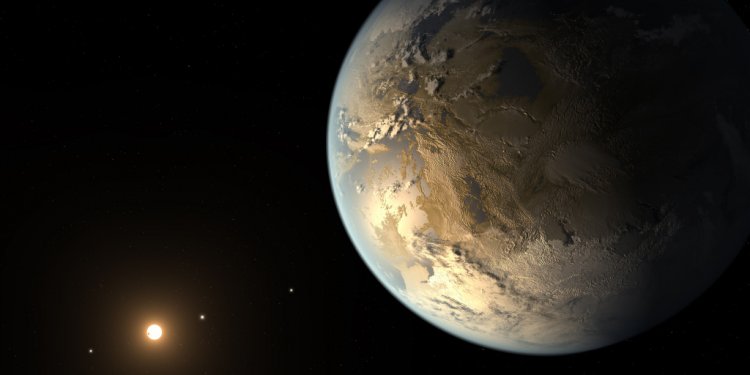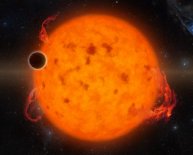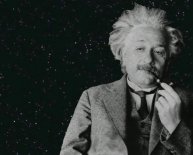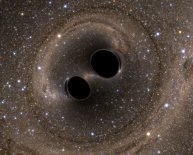
Latest Discovery in Space
 Albert Einstein: still correct a century later. Photograph: Arthur Sasse/Bettmann/CORBIS
Albert Einstein: still correct a century later. Photograph: Arthur Sasse/Bettmann/CORBIS
Today is not the end of a search, but a beginning. It is the beginning of gravitational wave astronomy, prepare for the wonders to come.
Gravitational waves are now known to exist. Photograph: Julian Stratenschulte/EPA
Arvanitaki also says that today’s detection shows that there could be thousands of detections a year with the fully sensitive LIGO and Virgo observatories. Truly a new era is opening up.
Arvanitaki now explains that there are experiments to try to detect gravitational waves by measuring the ultra-precise time pulses that comes from the spinning hearts of dead stars called pulsars.
Boyle now talking about the proposed eLISA space-based gravitational wave observatory. He explains that a space-based observatory would see different frequencies of gravitational waves than ground-based ones. In other words, we need space- and ground-based observatories.
Surely, the detection today gives the expensive space-based observatories a huge boost.
Turok says that now we know gravitational waves exist, future gravitational wave observatories will be able to see the signals coming from the big bang itself. He suspects that the technology may be 20-30 years away but one day, he says, we will be able to see the moment of the universe’s formation.
Bring it on!
Lehner says that astronomy to date has been like watching people come out from a movie and trying to guess the story by the look of their faces. Now, he says, gravitational waves allow us to look inside the theatre and read the plot.
Boyle is reminding us that after the advent of radio astronomy we say a lot of new types of objects in the Universe. Could we see ‘wilder’ stuff now that gravitational wave astronomy has begun?
Asimina Arvanitaki, Perimeter Institute, is now talking that perhaps gravitational waves will allow us to make progress in our search for dark matter. Dark matter is the so-far hypothetical particles that are thought to hold galaxies together in the Universe.
Lehner suggests that the discover today is so revolutionary that perhaps we should start a new calendar AGW – After Gravitational Waves. Welcome to year zero AGW!
Turok makes a philosophical point that there is something very mysterious about the Universe, and it is that we can understand it. It is astounding that we are sitting here today discussing a cataclysmic event that took place 1.3 billion years ago.
He says that it is an amazing prospect to wonder what use we may one-day be able to put gravitational waves – and not just for observing the Universe. He draws the analogy to radio waves. They were a curiousity when discovered, now we use them to transmit information.
Interesting to ponder and speculate...
Lehner explains that LIGO is just the start. Soon it will be joined by Virgo and Italy, and in a few years there are two more gravitational wave observatories that are due to come on line. The more detectors we have, the better we will be able to pinpoint the location of the gravitational wave sources.















